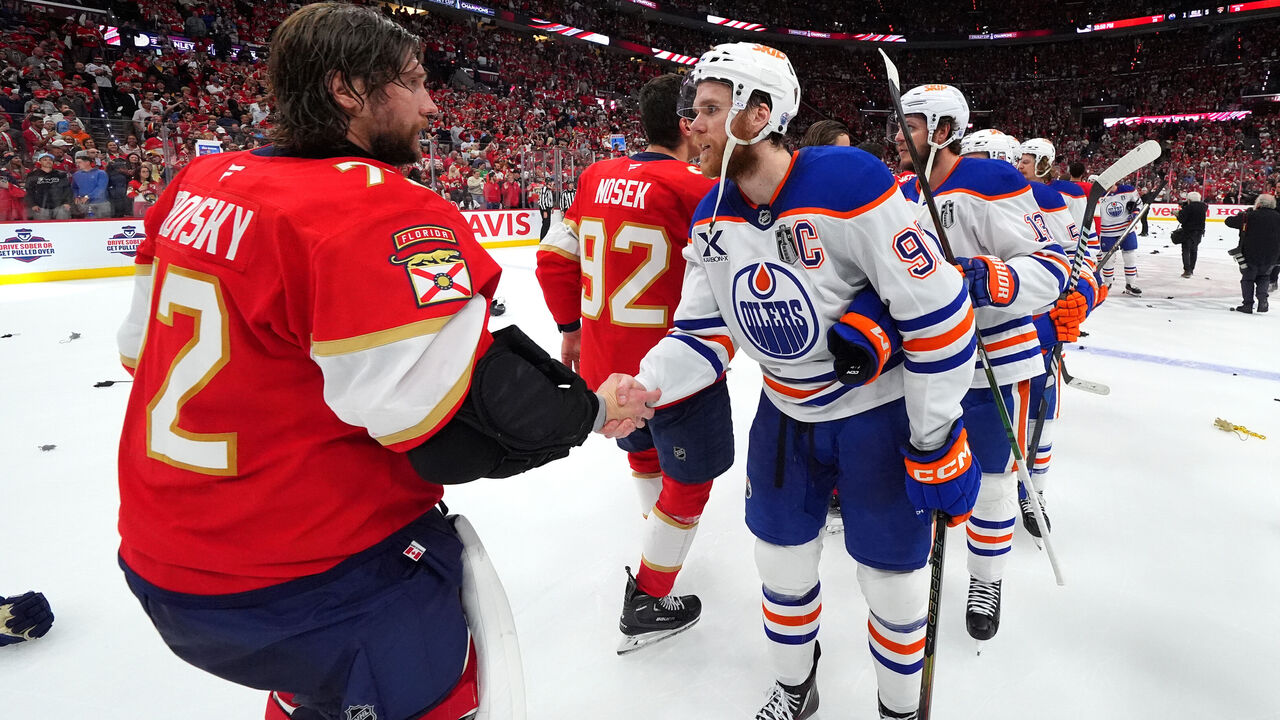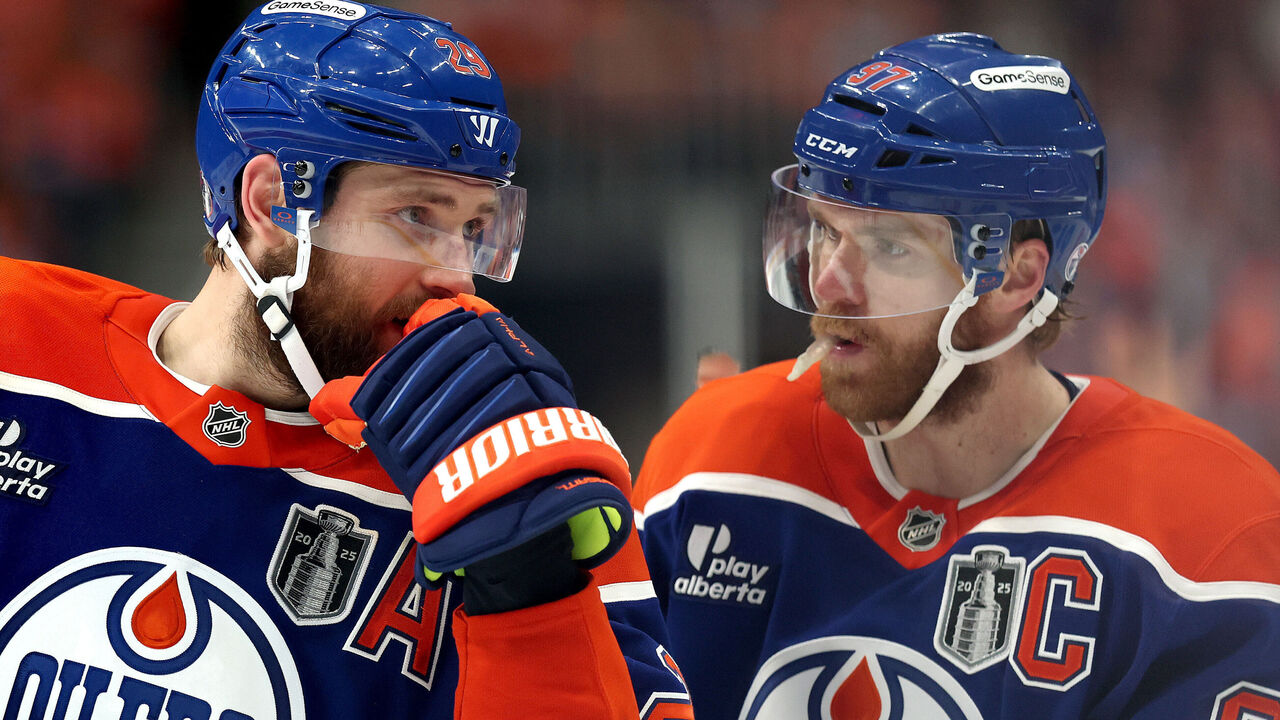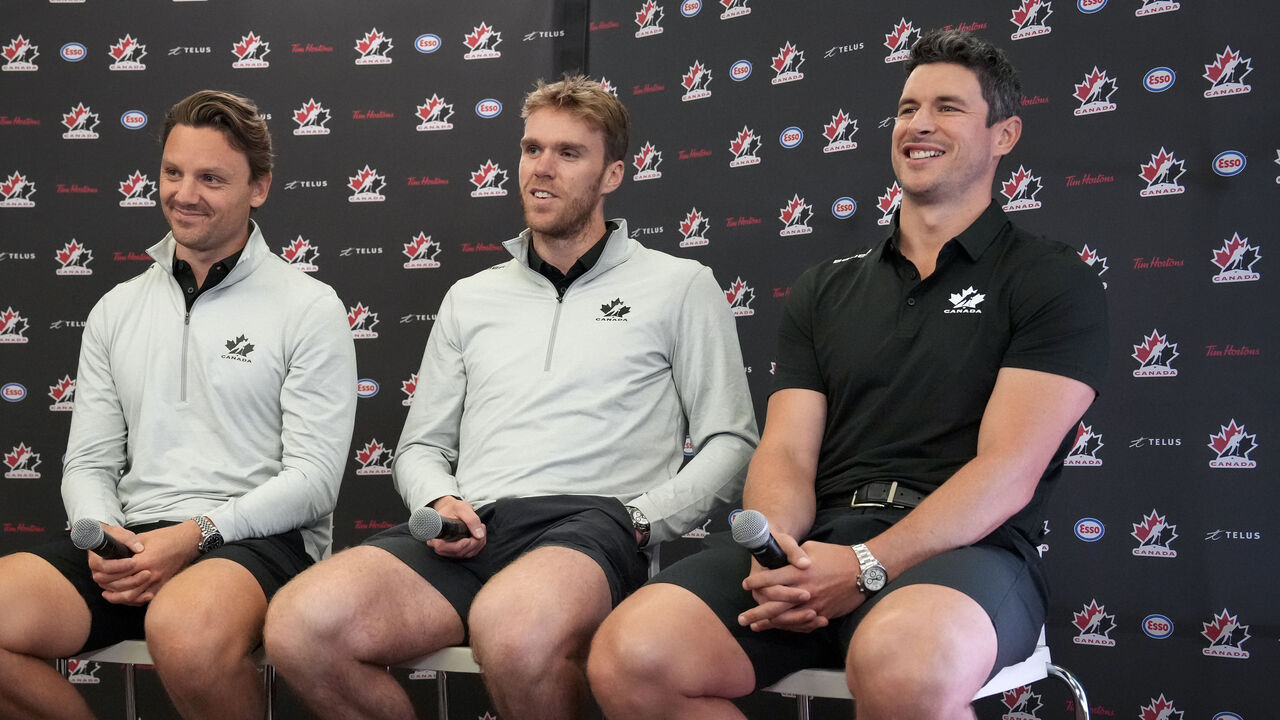Unpacking McDavid's deal: What it means for Oilers, NHL, other stars
Megastar Connor McDavid signed a two-year, $25-million contract extension with the Edmonton Oilers on Monday, the eve of the NHL regular season. The details of the deal stunned the hockey world. Here's what the contract means for McDavid, the Oilers, other star players, and the rest of the league.
What it means for McDavid, Oilers
McDavid's standing as the consensus best player in the world gave him nearly limitless leverage against the Oilers' management group. The phrase "he's been given a blank check" gets tossed around a lot in pro sports, often in jest, yet this truly was a blank-check situation.
This was by no means a negotiation: McDavid could have signed for as many years as he wanted (maximum of eight) and for as much money as he wanted (max 20% of the salary cap). He ultimately put his lifelong goal of winning a Stanley Cup above everything else. The Cup-or-bust vibe in Edmonton will continue beyond this season, and the cap-crunched front office suddenly has money to play with next summer.
"It's a steal for them," a member of a rival front office told theScore, referring to the Oilers. "He's giving them a clear window of opportunity, and if they don't win, he'll leave, having done his part."

The NHL is littered with team-friendly contracts. This is different: a unicorn deal for a unicorn player. McDavid signing for $5 million below market value (conservative estimate) upgrades the label to preposterously team-friendly.
McDavid signed for the same average annual value as his current deal even though the cap rose from $87.7 million last year to $95.5 million this year and is set to jump to at least $104 million in 2026-27 and at least $113.5 million in 2027-28.
In other words, the three-time Hart Trophy winner will account for 13% of the cap this year, 12% next year, and 11% in '27-28 (based on projections). While McDavid isn't technically taking a pay cut, his piece of the pie will shrink.
That $12.5-million AAV is currently the fifth highest for '26-27, slotting in $100,000 below Nathan MacKinnon and $500,000 above Mitch Marner and Mikko Rantanen. Kirill Kaprizov signed a record-setting eight-year, $136-million extension last week. The Russian winger is a tremendous player - arguably top 10 on the planet - but his $17-million AAV looks ridiculous now.
Keep in mind, too, that McDavid should be knocked down a few spots on the '26-27 and '27-28 cap hit lists once pending unrestricted free agents Jack Eichel, Artemi Panarin, and Kyle Connor put pen to paper on new deals.

McDavid, who's entering his 11th season, will be 31 years old at the end of his extension, which means he'll have spent the entirety of his 20s and the bulk of his prime in an Oilers uniform. Even if he leaves for another club in 2028 free agency, absolutely no one should feel sorry for the Oilers, including the Oilers themselves. They were gifted a generational player, they did a decent but unremarkable job of supporting him, and that player remained incredibly loyal.
A short-term deal always made the most sense from No. 97's perspective. It allows him to simultaneously commit to the Oilers and keep his options open.
With close friend and fellow superstar Leon Draisaitl helping carry the offense, Edmonton has a legitimate shot at reaching a third straight Cup Final this season. On the flip side, it's fair to wonder about the next iteration of this group. Goaltending remains an organizational sore spot, many of the core pieces up front and on the back end are in their 30s, and premier young talent isn't on its way.
What it means for other stars, league
The pending UFA market was turned on its head over the past week, with Kaprizov signing for above market value and McDavid signing for below.
General managers and agents may view both situations as wholly unique and thus not particularly relevant to their own negotiations. Or perhaps the new extensions, particularly McDavid's, will reduce how much leverage Eichel, Panarin, and Connor can wield in contract talks.
Either way, you can bet there are some players and agents out there who aren't too happy with McDavid's team-first approach. As the thinking goes, the best player in the world should raise the bar for everybody else. (Counterpoint: That's pretty unfair. McDavid's already earned $92 million over his career, makes millions per year in endorsements, and is sick of losing.)

It'll be interesting to see whether McDavid's reasoning influences his peers. Will any other stars feel emboldened to buck peer pressure and prioritize winning over money? McDavid and Sidney Crosby have both done that now - in fact, Crosby's done it more than once.
(And guess who else is lined up to hit free agency in 2028? Auston Matthews - who, like McDavid, is represented by Wasserman's Judd Moldaver.)
At the team level, the Oilers retaining McDavid is terrible news for Pacific Division teams - especially the Kings, who've lost to Edmonton in the first round for four straight seasons. It's bad news for the Western Conference in general, and of course for any franchise holding out hope that he'd test free agency.
Edmonton will be a default Cup contender for as long as McDavid continues to play at the level of an unquestioned world No. 1. There's nobody like him, and he's as motivated to win as ever. The most significant takeaway from this deal, however, might be that Oilers CEO Jeff Jackson and GM Stan Bowman will have plenty of flexibility instead of relative restriction. Think about it: McDavid and Draisaitl have a combined cap hit of just $26.5 million in '26-27 and '27-28.
If Jackson and Bowman fail to surround those two top-five players with a championship-winning roster, McDavid will surely be gone in 2028. If his new deal signals anything, it's that he's doing the Oilers a favor and wants to be rewarded accordingly.
John Matisz is theScore's senior NHL writer. Follow John on Twitter/X (@MatiszJohn) or contact him via email ([email protected]).